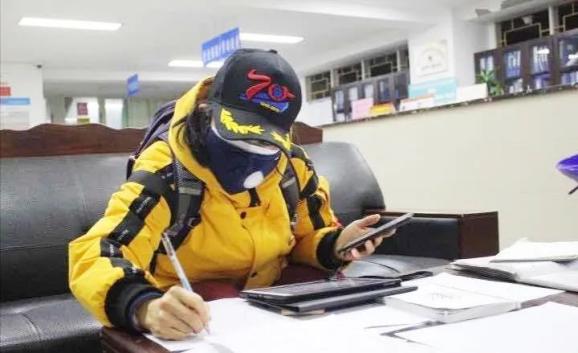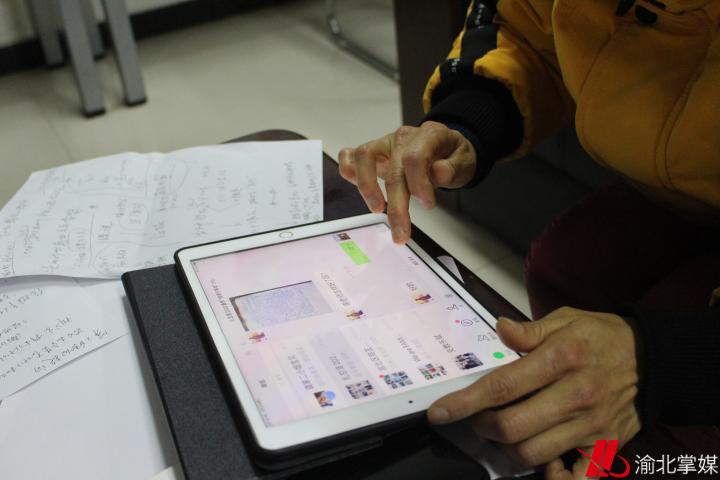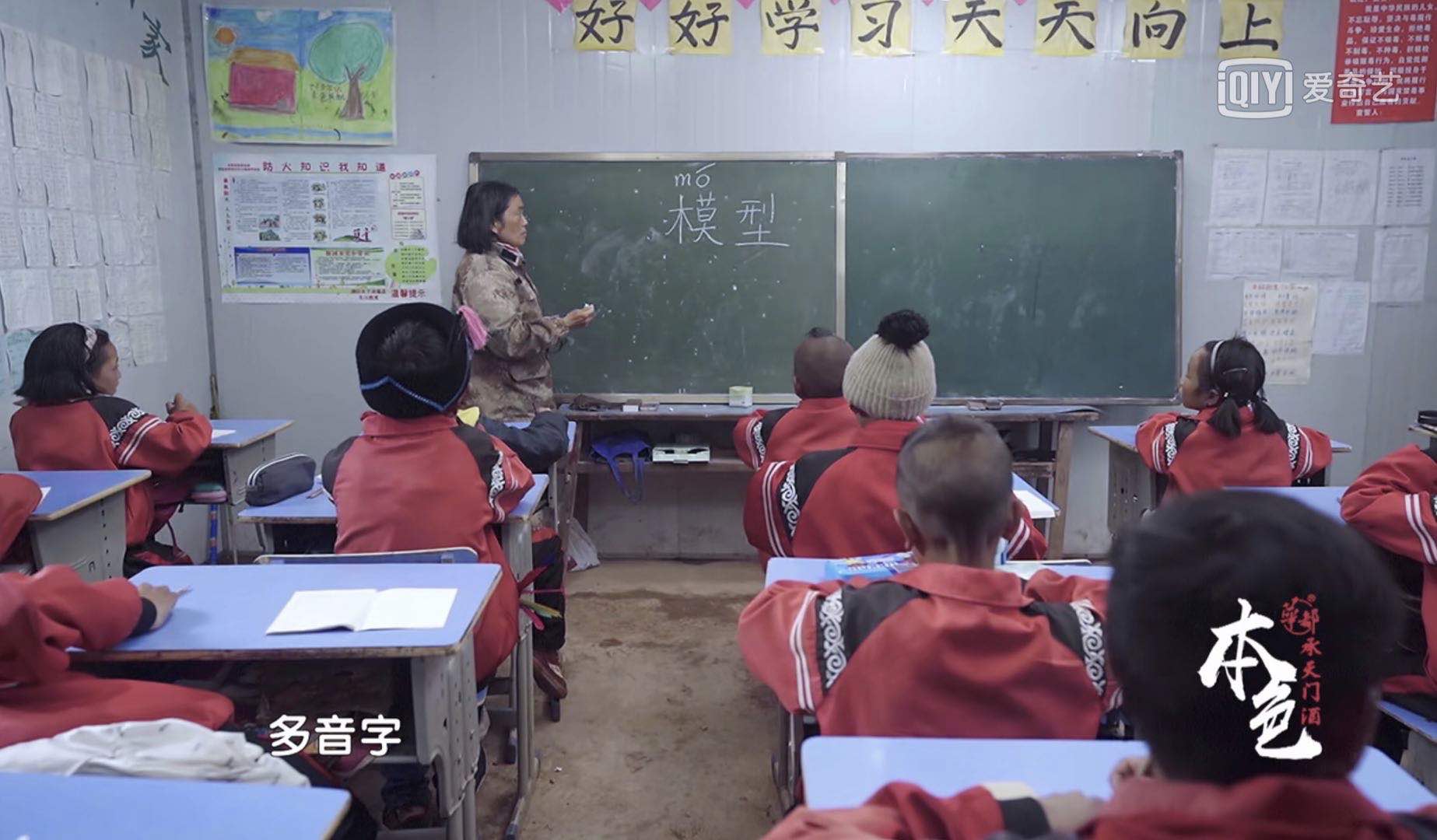


Xie Binrong corrects the homework that has been handed in by her students, who live in a remote mountainous area in southwest China. (Photo/thepaper.cn)
Certainly custom is most perfect, when it beginneth in young years: this we call education; which is, in effect, but an early custom.
——Francis Bacon, Of Custom and Education
For community volunteer Xie Binrong, teaching online is no easy job. Every day after work, the 49-year-old veteran picks up her phone and corrects the homework that has been handed in by her students, who live in a remote mountainous area in southwest China.
Xie Binrong is a former senior engineer with over 20 years of service at an air force base in northwest China. Now, she works as a volunteer teacher in Zhaganluo Village, Liangshan Yi Autonomous Prefecture, Sichuan province. The village has only a dozen households, and most of the residents are children.
When recent concerns over coronavirus forced the school to close, disrupting their education, Xie began holding online classes so that they could keep learning during this testing time. For Xie, it was unfamiliar and challenging territory.
“I had planned to go back to the village in February to start the new semester, but now I can't. I don’t want the children to fall behind,” said Xie. She is currently teaching 26 kids, all of whom are in fourth grade.

Xie Binrong corrects the homework that has been handed in by her students.
Although live-streamed online classes are available on various teaching platforms, it is difficult for the children to take them as the hours clash with their farming duties, and the speed of online education is too fast for these kids to keep up with. As a result, Xie decided to teach them through WeChat after first learning the new lessons herself.
She began by selecting four online teaching platforms and taking the classes every day, sometimes writing six or seven pages of notes in a single class. Generally, it takes her two days to prepare for each lesson. Every morning before going out to work, Xie would send the materials to the kids, and correct their homework online in the afternoon.
As Xie is not particularly tech savvy, learning how to teach online took a great deal of effort. She had to learn a range of modern skills, such as creating a WeChat group, editing pictures, and searching for teaching materials through various Apps. “I’m learning and growing with the kids,” she joked.
Xie started teaching the children at Zhaganluo Village in 2014, after noticing by chance online that the poverty-stricken Liangshan was in need of teachers. When she first arrived, some children didn’t even know double-digit addition and subtraction, while others couldn’t speak a single sentence of Mandarin.

Xie Binrong works as a volunteer teacher in Zhaganluo Village, Liangshan Yi Autonomous Prefecture, Sichuan province. (Screenshot from iQIYI)
Over the years, as well as teaching the children how to read and do math, she has also been teaching them to cultivate good habits. Thanks to her efforts, the children have become polite and hard-working.
In Xie’s eyes, only when these students acquire a certain level of literacy, broader horizons and a good lifestyle can they have the confidence and ability to get rid of poverty and build a better future for themselves.

Xie Binrong takes a photo with the children.
“This year is a decisive year in the fight against poverty. Education is essential to lifting Zhaganluo Village out of poverty. Children’s education cannot wait,” she said, adding that when this group of children become parents, the village will seem like another world.
When the coronavirus began spreading, Xie told the children to protect themselves and that she would come back as soon as the virus was defeated. She is now learning a dance routine from a video App, and promised to teach it to them when they are reunited.
 Fire brigade in Shanghai holds group wedding
Fire brigade in Shanghai holds group wedding Tourists enjoy ice sculptures in Datan Town, north China
Tourists enjoy ice sculptures in Datan Town, north China Sunset scenery of Dayan Pagoda in Xi'an
Sunset scenery of Dayan Pagoda in Xi'an Tourists have fun at scenic spot in Nanlong Town, NW China
Tourists have fun at scenic spot in Nanlong Town, NW China Harbin attracts tourists by making best use of ice in winter
Harbin attracts tourists by making best use of ice in winter In pics: FIS Alpine Ski Women's World Cup Slalom
In pics: FIS Alpine Ski Women's World Cup Slalom Black-necked cranes rest at reservoir in Lhunzhub County, Lhasa
Black-necked cranes rest at reservoir in Lhunzhub County, Lhasa China's FAST telescope will be available to foreign scientists in April
China's FAST telescope will be available to foreign scientists in April "She power" plays indispensable role in poverty alleviation
"She power" plays indispensable role in poverty alleviation Top 10 world news events of People's Daily in 2020
Top 10 world news events of People's Daily in 2020 Top 10 China news events of People's Daily in 2020
Top 10 China news events of People's Daily in 2020 Top 10 media buzzwords of 2020
Top 10 media buzzwords of 2020 Year-ender:10 major tourism stories of 2020
Year-ender:10 major tourism stories of 2020 No interference in Venezuelan issues
No interference in Venezuelan issues
 Biz prepares for trade spat
Biz prepares for trade spat
 Broadcasting Continent
Broadcasting Continent Australia wins Chinese CEOs as US loses
Australia wins Chinese CEOs as US loses